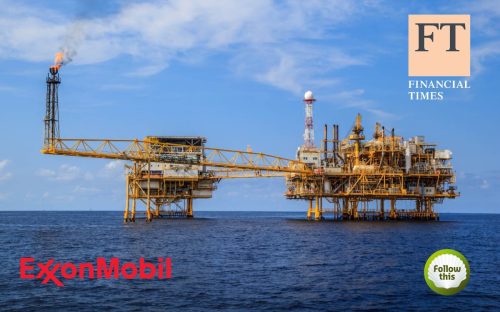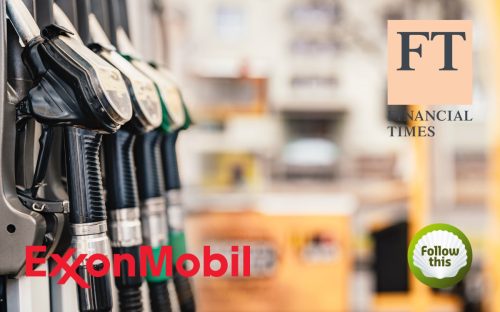Media briefing about climate resolution at Total (for French journalists)
In France, like in every country where an oil major faces a climate resolution, a schism will be visible between investors:
- some investors will vote against the resolution or abstain to keep a “good relationship” with the country’s most powerful company (take, for example, BNP Paribas, who will abstain) and
- other investors will publicly urge the company to act on climate (such as Banque Postale, who co-filed the resolution (#), by voting for the resolution.
- A minority of all shareholders will vote for, but in the end, it is the progressive minority that drives change.
- Same pattern occurred at Shell, BP, and Equinor, where the same climate resolutions came to vote in the period 2016-2020.
- This briefing contains detailed information about climate resolutions, Total’s new ambition and investors.
“Luckily, more and more investors publicly urge oil and gas majors to act on climate change, instead of citing non-committal climate ambitions for 2050, as Total recently did,” says Mark van Baal, founder of Follow This, who have filed the same resolution as Total’s at Shell, Equinor, and BP since 2016. “These investors rightfully see that a good relationship is not mutually exclusive with voting for resolutions.”
“Many investors, like many parents, confuse a good relationship with always giving in.”
“We expect that globally a minority of responsible investors will vote for the climate targets resolution.” Total’s board has advised shareholders to vote against the resolution at Total’s AGM next Friday. While ordinarily, 99% of shareholders vote according to management advice, a significant percentage of the votes will be a clear signal that investors now expect action from management – and not just empty words. In the cases of Shell, BP, and Equinor, 6%, 8%, and 12% were enough to compel these companies to set climate ambitions.
Netherlands
In the Netherlands, a growing number of responsible investors urged Shell to take climate action by voting for the Follow This climate resolution since 2016 (up from 2,7% in 2016 to 14,4% in 2020). The resolution supports Shell to reduce emissions in line with the Paris Climate Agreement. Total faces a resolution with the exact same request at its AGM on Friday.
Familiar pattern in Norway and UK
Van Baal saw a pattern emerging in the Netherlands, Norway, and the United Kingdom: “When a climate targets resolution comes to vote, the oil and gas company comes with a ‘new ambition’, typically endorsed by well-meaning institutional investors and the CA100+. Together with these investors, the company dismisses the resolution as ‘unnecessary’. (*)
2020
At the recent AGMs of Equinor and Shell it was clear this orchestrated play is no longer working. Despite board advice to vote against the resolution “to show support for the new ambition” (Shell directors’ responses in 2018 and 2020) both companies saw the votes for climate target resolutions more than double from 12% to 27% (Equinor) and 5,5% to 14,4% (Shell).
In 2020, we are asking the same questions to every oil major, in order to offer shareholders transparency and clarity about the medium-term impact of their strategy.
Follow This submitted the following crucial questions at Total’s AGM:
- Will your new Climate Ambition lead to a (net) absolute emissions reduction by 2030)?
- Will new Climate Ambition lead to a fundamental shift in investments away from fossil fuels to renewables of at least 50% annually within this decade (by 2030)?
The answers so far:
- Shell won’t commit to a shift in investments by 2030, nor a decrease in emissions by 2030
- Equinor didn’t answer these questions.
Similarities between Total and Shell (why we think the outcome at Total will be between 10% and 20%, where ordinarily 99% follows management advice to vote against):
- Climate targets resolution requests Paris-aligned targets for all emissions (Scope 1, 2, and 3)
- Company announces a new “net zero by 2050 ambition” together with lead investors of CA100+ and calls the resolution “unnecessary”
- Upon closer reading, the ambition turns out not to be “net zero” but a relative emissions reduction of 60% (Total) or 65% (Shell) by 2050. This is equal to an absolute emissions reduction of roughly 50% by 2050, compared to 2019 (when energy demand grows by around 40%), whereas an absolute emissions reduction of 70% (2°C pathway) to 100% (1.5°C pathway) is required according IPCC scenarios.
- ISS and Glass Lewis advise shareholders to vote AGAINST
- ISS sustainable advice is to vote FOR
- Investment pipeline is currently 95% committed to new fossil fuels – with no plans to shift investments away from fossil fuels to renewables.
- Many investors in Shell are also investor in Total and are inclined to vote consistently
Order of events Total:
- 14 April: group of 11 investors files Climate Targets Resolution
- 5 May: Total announces new ambition in joint statement with CA100+ and states that there is “no need” for a climate resolution anymore (*)
- 6 May: group of 11 investors welcomes new ambition and keeps resolution on the agenda of the AGM “to encourage Total to go further in its ambitions”
- Total advises to vote against the resolution
- 29 May 10:00: Total AGM to be streamed live
Total’s climate ambition
- Total’s ambition to reduce its carbon intensity by 60% (a relative metric) combined with an estimated growth of energy demand of 40% results in an absolute net emission reduction of around 44% by 2050, whereas absolute emissions reduction of 70-100% is required according IPPC scenarios.
- Total’s pledge to allocate more than 10% of its investments to low carbon electricity [and 20% in 2030] sounds like a lot to start with, but means little, while ‘low carbon’ most of the time equals ‘natural gas’ in Total’s dictionary.
(*) Shell: resolution is “unnecessary”, Total: “There is therefore no need to compel the strategic framework of the Company’s activity in the by-laws”.
(#) Full list of investor co-filers: Actiam, Candriam, Crédit Mutuel Asset Management et les Assurances du Crédit Mutuel, Ecofi Investissements, Friends Provident Foundation, Fédéral Finance Gestion, La Banque Postale Asset Management, Meeschaert AM, Sycomore Asset Management.











